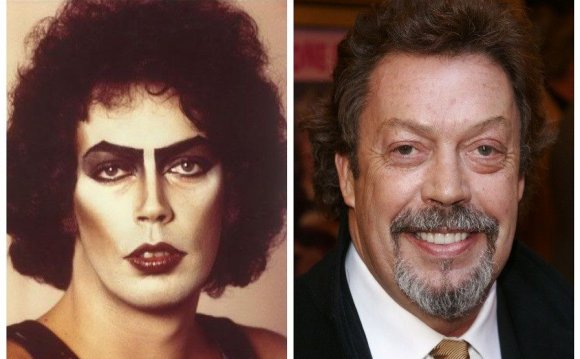

Clap your hands if you're Meat Loaf.
P.R. Brown
Rock opera maestro Marvin Michael Lee Aday, better suited by his stage name, Meat Loaf, finds his way to Phoenix as a headlining act for the opening weekend of the 2015 Arizona State Fair. The multi-platinum Bat Out of Hell entertainer will take the stage on Sunday, October 18, at Veterans Memorial Coliseum.
With long-time songwriting partner Jim Steinman, Meat Loaf has made a career of taking listeners on long conceptual journeys through the art of storytelling in the rock ’n’ roll medium, with tracks like “Paradise by the Dashboard Light” and “I’d Do Anything for Love (But I Won’t Do That).” Now, teaming with Steinman once again, he is currently preparing for the release of his latest album, Braver than We Are.
“Something like they have never heard before, ” Meat Loaf says, summing up his new record with this single sentence. He is not going to split hairs, however, on the notion that this experimental music may fall flat by offering. “The opening song most people are not going to understand where it came from, and they are either going to throw it against the wall and never want to listen to anything else on the record, or they’re going to go, ‘What is that? And what’s going to come?’”
Few people have strung together a legacy like Meat Loaf. On top of the international music success, he has carved out an impressive side career as a screen actor. Having appeared in more than 40 motion pictures, Meat Loaf has brought to life an array of unique and obscure characters for the pop culture landscape — including two films that each redefined cult followings, Rocky Horror Picture Show and Fight Club, where he played the scene-stealing roles of Eddie and Bob respectively.
With so many performing outlets to consider, and a relentless well of creativity to think about, it should come as no surprise that Meat Loaf will let his thoughts wander during a conversation. You can nearly pinpoint the moment when the seasoned center-stage entertainer inside of his brain takes control of his words; he will begin speaking in awkward over-the-top absolutes (“Listen, I never will walk on stage without being willing to die on that stage”), where he flaunts his reputation as a diva (“you don’t want to come into my dressing room 15 minutes before I go on, [because] I’m a serial killer. People just stay away from me”), or offer up a deep and complicated artistic mystical statement (“I would never tell you what I’m singing about, because once the record is in your hands it no longer belongs to me—it belongs to you”).
It is with that larger-than-life personality that Meat Loaf has been able to maintain fluidity in an ever-evolving entertainment industry. For decades he has endured both the rise and fall of his stardom, and when his career hits a lull, the Dallas, Texas, native cowboys up and puts his nose to the grindstone until the tide of fame returns to pick him up once again.
Today, Meat Loaf still casts himself in the same spotlight as a force to be reckoned with in career longevity and live performances. His wild-eyed enthusiasm of the ’70s seems to have given way to a slower pace and a softer tone of voice, but maybe that’s because Meat Loaf doesn’t have to talk for anyone. He’s proven his worth for more than 40 years, and until the morning comes, the bat out of Hell will keep rocking through the night.
New Times recently spoke with Meat Loaf to discuss his new album, how he prepares mentally for a live performance, and his upcoming trip to Phoenix, where he hopes things will go better on this visit since he got robbed the last time he came to our city.
What should fans expect with your new album, Braver than We Are?
Something like they have never heard before.
As in never heard from Meat Loaf before; or never heard in the history of music?
Well, the opening song, most people are not going to understand where it came from and they are either going to throw it against the wall and never want to listen to anything else on the record, or they’re going to go, “What is that? And what’s going to come?”
Then what follows it is even more bizarre, and what follows that gets even more bizarre. Usually when you sing a record you use your voice, right?
YOU MIGHT ALSO LIKE












